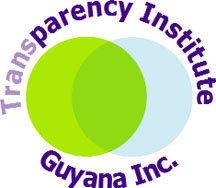This is a continuation of last
week’s article on the above subject.
The Guyana Forestry Commission (GFC) claims that the forest sector under its management brings significant economic gains to the economy and citizens of Guyana. This claim is wholly undermined not only by the specifics of the deals negotiated in secret, but also on a general scale by policies fiercely defended by the GFC such as the continued export of log exports and that of ‘joint ventures’, which contravene the Code of Practice for TSAs.
Bai Shan Lin (BSL) has been allowed to claim significant FDI tax concessions, including the importation of machinery, and probably fuel, duty free, in return for little or no benefits to the country. One example will be given from seven years ago in relation to purpleheart logs, which were being exported from Guyana at the cost of US$140 – $160 per cubic metre. That same log was valued on import into China at almost US$700 per cubic metre. Calculating freight at a maximum of US$100 per cubic metre, this means that purpleheart – one of Guyana’s most durable and beautiful hardwoods – is being sold for a fraction of its real value. The same goes for all of the country’s other prime, rare and valuable species, which are being selectively harvested and shipped out in a steady, uninterrupted flow. The British website called Global Timber states that:
The Guyana Forestry Commission has not published sufficient recent forest inventory, roundwood production and export data to

